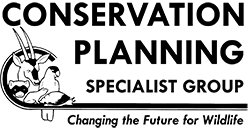 Leatherback Workshop
Leatherback Workshop
Sean and Richard organised and participated in a two-step workshop process for an assessment on the utility of ex-situ conservation actions to compliment in-situ actions in order to prevent the extirpation of the Eastern Pacific Leatherback Turtle population (EPLB). The specific ex-situ actions discussed were egg translocations from other populations into the EPLB and head-starting (captive rearing and release of hatchling turtles). Over 50 conservation and research practitioners participated in the workshops from around the world, including Australia, Europe, North and South America.
The report has recently been published on the IUCN Conservation Planning Specialist Group’s website and is freely available for download here.
SharkMates website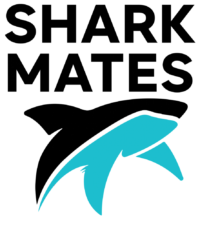 launched:
launched:
As part of our FRDC-funded project on improving outcomes for sharks and rays caught and released by recreational fishers, the SharkMates website and YouTube channel have been launched. The website contains videos and instructions on the best and most humane handling practices for captured animals, to provide information to increase the survival of released sharks and rays and to improve fisher safety.
Chris and Licia have completed their PhDs, congratulations!
Licia’s PhD thesis titled ‘Reproductive and energetic consequences of fishing capture on chondrichthyan species’ was passed by her examiners and she has been awarded her PhD. Some chapters have been published and others are about to be submitted, while Licia has return to Italy and is now working in a postdoctoral position at the University of Padova.
Chris’s thesis titled ‘The role of incubation moisture and metabolism in sea turtle hatchling locomotor performance’ was passed and his PhD was awarded in 2020. After spending time working on various projects and publishing his thesis research, Chris is about to start a position in the environment and sustainability department of McConnell Dowell, a construction company that specialises in environmentally challenging projects
April 2020
Cathy, Fran, and Sonia have completed their PhDs, congratulations doctors!
Cathy, Fran, and Sonia’s theses were all passed by their external examiners and they were awarded their doctorates – congratulations ?
Cathy’s PhD was conferred by Monash University in October 2019. Cathy’s PhD research determined prey species abundance and availability within northwest Bass Strait, using an iconic top predator- the little penguin. Cathy’s research is helping to inform ecosystem models of the area, providing for better ecosystem management and conservation. Cathy now works as the Operations Manager for Remember the Wild an Australian nature-connection charity.
Fran’s PhD was awarded in November 2019. Fran’s PhD research investigated the microbiome of sea turtles and examined how the microbial community influences the fitness of its host. Fran is now working as a veterinarian, wildlife photographer and as the owner of Wildvet Photography.
Sonia’s PhD was conferred in March 2020. Sonia’s PhD research focused on finding the feeding hotspots of an iconic endemic Australian top-predator, the little penguin (Eudyptula minor) in the Bass Strait. Sonia now works as the Beach-nesting Birds Project Officer for BirdLife Australia and continues to teach at Monash.
Sean and Richard organised a workshop in Adelaide on sharks and rays in recreational fisheries.
A workshop was held at The South Australian Research and Development Institute (SARDI), West Beach (SA), on the 26th of November 2019. The workshop was about “Sharks and rays in recreational fishing: priority species, handling guidelines, post-release survival, and extension approaches to support cultural change in fishers”. The workshop was jointly organised and delivered by the investigators of two FRDC-funded projects; project 2018-042 led by Dr. Richard Reina (Monash University) and project 2018-055 led by Dr. Paul Rogers (SARDI). Workshop participants included representatives from recreational fisheries peak bodies, fisheries scientists, conservation NGO scientists, government fisheries and natural resource managers and policy officers, social scientists, and representatives from the recreational fishing sector. This work was funded by a grant from the Fisheries Research and Development Corporation.
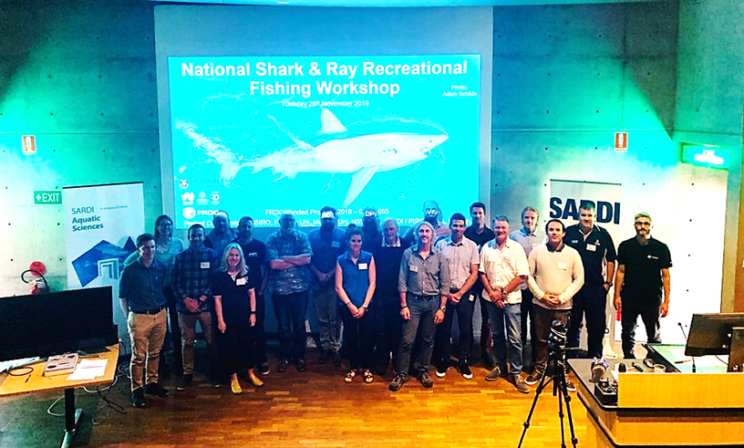
Welcome to two new PhD Students, Abigail Parker and David Adams
David Adams and Abigail Parker joined the lab group in February 2020. Both Dave and Abi will be working on embryonic development in turtles, with some possible forays on embryonic development of other species of reptile. Dave joins us from Florida, USA, where he has experience working on turtle nesting beach projects. Abi hails from the UK and has previous experience working on turtle nesting beach projects in Costa Rica and marine mammal projects in the UK. Welcome to the lab!
August 2019
Funding for Leatherback Sea Turtle Research Awarded by Upwell Turtles
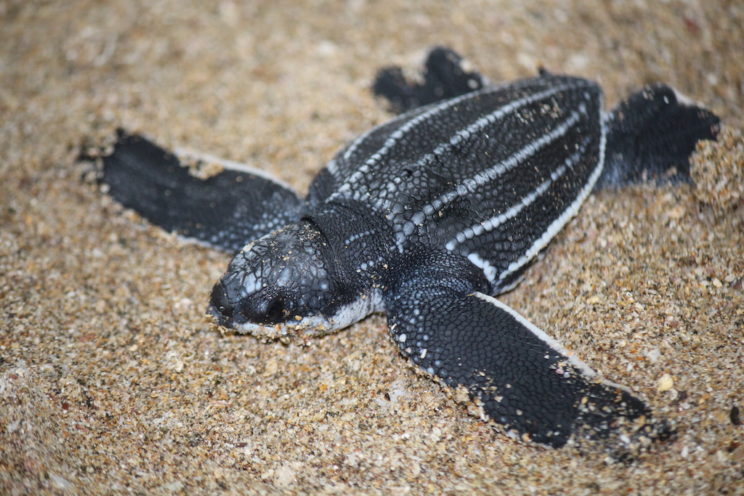
June 2019
 Sharks: menacing monsters of the deep are misunderstood, and under threat
Sharks: menacing monsters of the deep are misunderstood, and under threat
“You’re gonna need a bigger boat.”
Sound familiar? It’s one of the most memorable movie lines, uttered by a terrified Martin Brody (Roy Scheider) as he backs away after sighting a great white shark in Steven Spielberg’s blockbuster movie Jaws.
It was 20 June, 1975, when the mechanical Hollywood construction resembling one of the ocean’s most notorious creatures made it to the silver screen.
It’s only a very small number of species that have these negative interactions with people. It’s under really limited circumstances, and it really gets hyped up by the media.
Read the full Monash Lens article here
June 2019
Grant awarded to improve outcomes for sharks and rays caught by recreational fishers in Victoria
Richard was awarded a grant by the Fisheries Research and Development Corporation to develop handling practices and an education program for protection of sharks and rays impacted by recreational fisheries in Victoria. In collaboration with Flinders University, the Victoria Fisheries Authority and the Victorian Recreational Fishing Peak Body we will be working for the next couple of years to improve health, survival and outcome for a wide range of sharks, rays and chimeras. See more information about this project our Research webpage
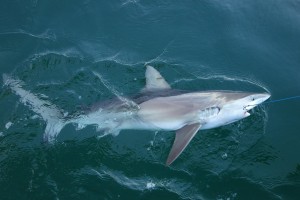
Sea turtle conservation and student internships in Malaysia
Richard secured funding for honours student Bill Matthews and two undergraduate interns, Ellen and Abraham to work on Lang Tengah Turtle Watch investigating the role of nest moisture on hatching success and fitness. Ellen and Abraham gained valuable experience in hands-on conservation work on the project in mainland Malaysia while assisting the project and Bill’s honours research.
Lab Members head north to South Carolina for ISTS.
Angie, Bill, Chris, Fran, Richard and Sean attended the 39th International Sea Turtle Symposium in Charleston, South Carolina, in February. Richard gave an invited talk on “Why is the world becoming anti-science and anti-expert? What can we do about it?”. Bill presented his honours work with a poster titled “The effect of moisture on green sea turtle (Chelonia mydas) hatchling fitness and success”. Chris gave a talk on his PhD research titled “Can you handle the heat? Does moisture during incubation influence heat tolerance of emerging hatchlings?”. Fran presented a talk from his PhD work on “The microbiota of sea turtles”. We all thoroughly enjoyed our time in Charleston with lots of inspiring presentations and discussions over the seven days.

Lab members at the Student Travel Grant Auction Night in Charleston.
Richard elected to the Board of Directors of the International Sea Turtle Society
Society
Following election by the membership, Richard has been appointed to the Board of Directors of the International Sea Turtle Society for a five year term. The BoD is responsible for promoting the understanding of sea turtle biology, management and conservation throughout the world as well as the running and development of the society. The organising of the annual sea turtle symposium is a major task led by the President that all board members contribute to.
Belated congratulations to Leo and Sean for completing their PhDs!
Leo and Sean’s PhD theses were passed by examiners and both were awarded their doctorate – congratulations to you both!
Leo graduated in December 2017. He investigated the effects commercial fisheries capture has on the survival, behaviour and reproduction of bycaught sharks and rays. Leo is now working as a Senior Sharks Campaigner with the Australian Marine Conservation Society.
Sean graduated in May 2018. He researched the control and ecological significance of embryonic development in crocodiles and turtles. Sean spent 6 months working in Costa Rica and Mexico for Upwell, a Californian conservation NGO and has recently returned to us here at Monash to work as a postdoc on the shark and recreational fishers project.
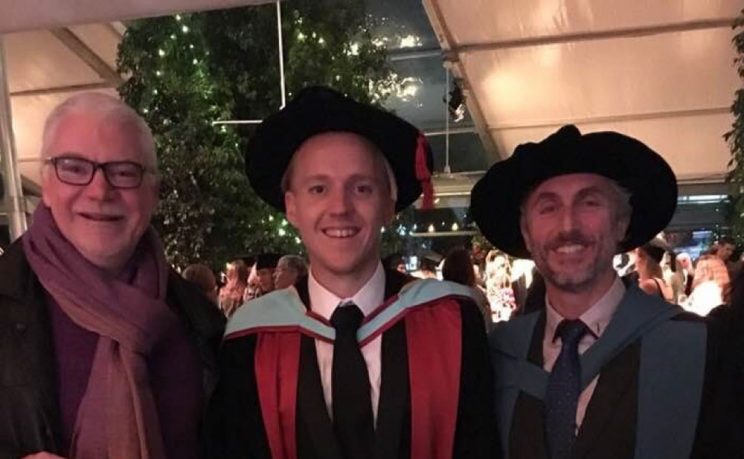
Roger (Sean’s Co-supervisor), Sean and Richard at Sean’s Graduation.
Cathy and Sonia both publish their first PhD papers and complete their final seminars.
Cathy had her first PhD penguin paper published in October last year, Hakai magazine covered the study here. Sonia quickly followed up with another penguin paper in November, also the first to be published from Sonia’s PhD. A massive congratulations to you both, what an achievement! To top off this success, they both also recently completed their PhD Pre-submission Seminars, congratulations. Both Cathy and Sonia will soon be submitting their theses for external examination.
Chris and Fran talk in 3-minute Thesis Competition and also nearing PhD submission.
Chris and Fran recently gave excellent talk’s in the School’s 3-minute Thesis Competition.
It appears 2019 will be a year for a mass exodus of PhD students from the lab with Chris and Fran also hoping to submit their theses soon.

Chris and Fran in the 3-minute Thesis Competition.
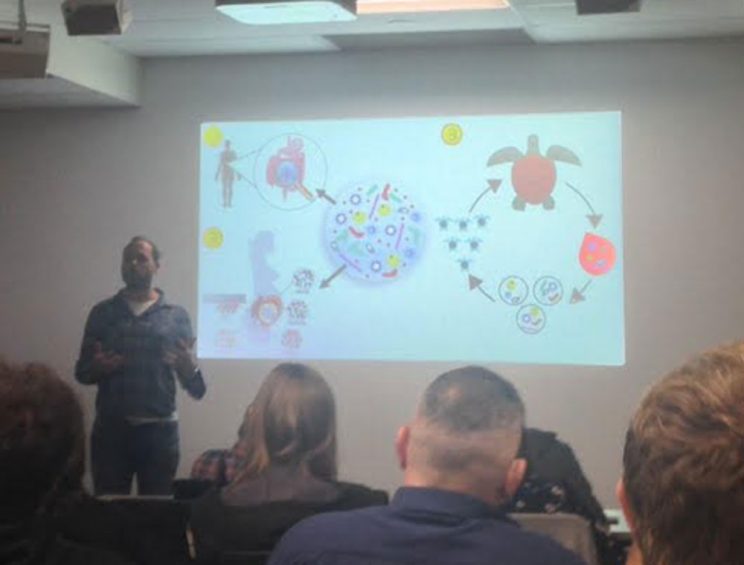
Fran’s Pre-submission Seminar Complete!
Fran very recently gave a fantastic talk for his PhD pre-submission seminar where we learnt about some exciting findings; 1) Phylogeny is the major determining factor for vertebrate microbiota composition and not diet as previously thought. 2) There are significant differences in microbiota composition between sea turtle species as well as between the same species from different populations. 3) Hatchling turtles appear to acquire a proportion of their microbiota from the mother via the blood. 4) There is some correlation between microbiota composition and some blood values in sea turtles. Fran will be submitting his thesis in the coming months.
Licia in the midst of experimental work with Elephant Fish for her PhD.
Licia is now focusing on the energetic consequences of fisheries capture stress, a long term non-lethal effect. To do so, Licia is investigating the changes in oxygen consumption (through respirometry measurement) caused by a simulated fishery capture event, as oxygen consumption is a good proxy for aerobic metabolism. Indeed stress response is an energetic demanding process and, given that the amount of energy available to an organism is fixed, the additional energy that is invested to deal with and survive capture stress, has to be subtracted from other important biological processes, such reproduction, growth and immune competence, potentially causing long term severe impairments.
At the moment Licia is working with elephant fish (“a pretty cool-weird animal”); housing their eggs, measuring their metabolic rate, and potentially keeping them till hatch when Licia will measure the metabolic rate of the neonates.
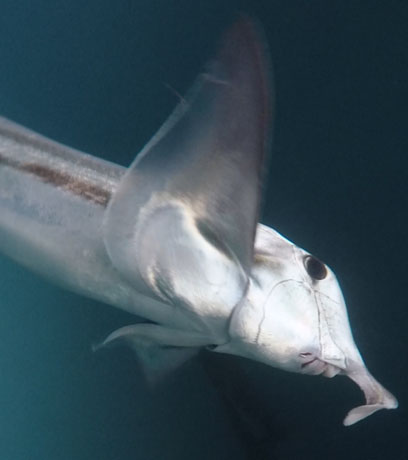
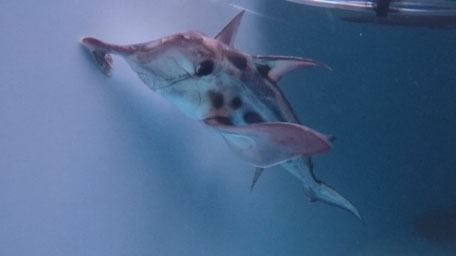
October 2017
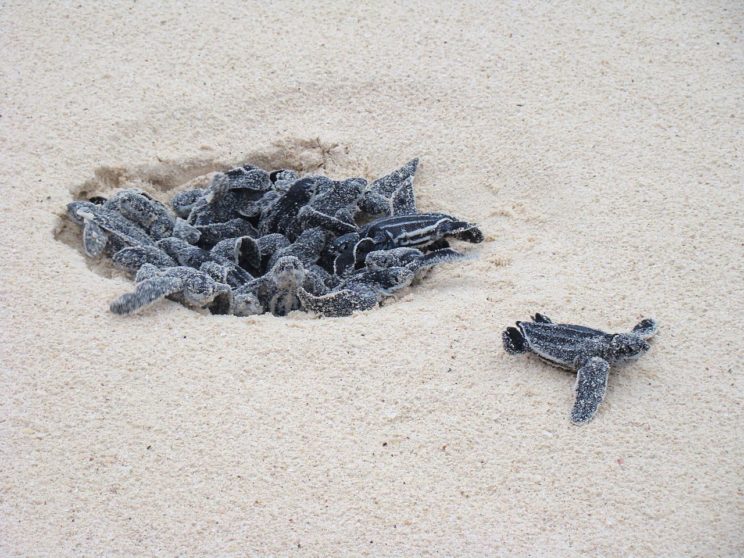
What’s behind the loss of little leatherbacks?
Australian and US scientists say they’re not sure why numbers of leatherback turtle hatchlings declined significantly in the US Virgin Islands between 1990 and 2010. Hatching success dropped from 74 per cent to 55 per cent during the period, but there were no recorded changes in local temperatures and rain levels which might help explain the drop, say the scientists.
Scientists look for a new culprit for decreasing turtle birth rates.
A 20-year study on the hatchling habits of the leatherback turtle has concluded with a call for further research after scientists were unable to attribute dwindling numbers to climate change.
Read more here – Monash University press release
August 2017
Experts uncover mystery ‘sea creatures’ that savaged teen’s legs . Interview on 9 News 
Experts have solved the mystery of bizarre flesh-eating sea critters that mauled a teenager’s legs after he went for a dip at a Melbourne beach.
Click here to see the interview with Richard.
May 2017
Research featured on the New Scientist Daily News.
Pregnant rays tangled in trawler nets have small, sickly babies.
The accidental capture of pregnant rays in fishing trawls harms their unborn babies.
Rays often get tangled up in trawling nets dragged behind boats to catch large volumes of fish. They are usually thrown back into the sea, but being trapped and brought up to the surface can be traumatic — and sometimes fatal.
U nborn rays traumatised when their mothers are captured: world-first study finds.
nborn rays traumatised when their mothers are captured: world-first study finds.
Cathy and Sonia rePresent in South Africa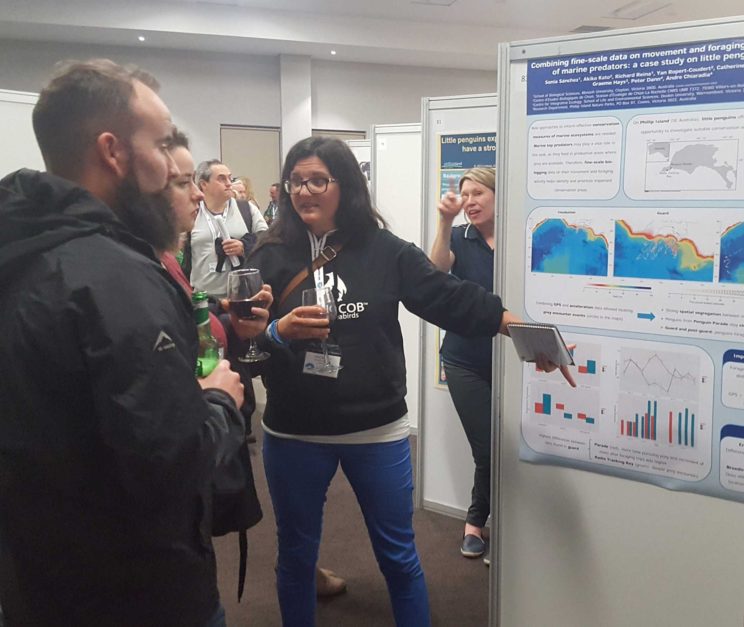
In September, Andre, Sonia and Cathy attended the Ninth International Penguin Conference in Cape Town, South Africa. This was a fantastic meeting at which to showcase the data resulting from Sonia and Cathy’s first season at Phillip Island, and to network with penguin scientists from all over the world! Andre presented findings on penguins in biodiversity hotspots and the issues facing these important penguin areas. The latest findings of the IUCN Specialist Group on Penguins (@IUCNPenguin on Twitter), in which Andre is a expert adviser, were presented in a keynote on the second day. Cathy presented her findings on penguin diet and the prevalence of gelatinous prey. She was pleased to be the only one presenting on genetic analysis of 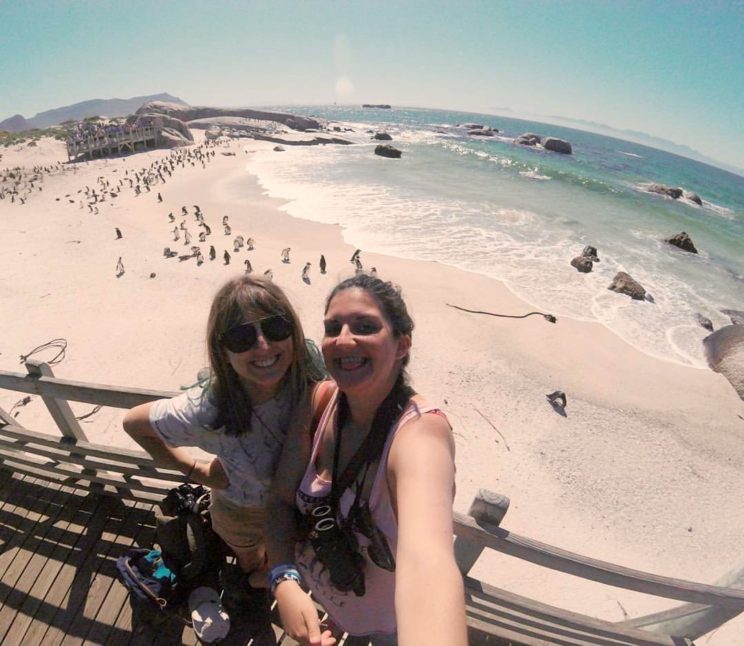 diet, affording her research and presentation lots of attention and offers of collaboration. Sonia presented her first tracking and accelometry results in a poster session, and at the 11th hour was invited to present her data within one of the workshops!
diet, affording her research and presentation lots of attention and offers of collaboration. Sonia presented her first tracking and accelometry results in a poster session, and at the 11th hour was invited to present her data within one of the workshops!
The team were thrilled to visit some African Penguin colonies and compare the differences between these and the Little Penguin. Cathy and Sonia were particularly amazed at how much time the birds spent “hanging out” on the beach, compared to our penguins, who work tirelessly throughout the day to find food for their chicks. After the conference, Cathy and Sonia were able to investigate the incredible floristic biodiversity of the area, with highlights including the fynbos of Table Mountain and the entirety of South African flora at the Kirstenbosch Botanic Gardens.
Cathy helps us all tweet about penguins with #PISCI1
In November, Cathy and Andre (Phillip Island Nature Parks) were involved in coordinating the Twitter conference and live tweeting of the face to face conference at the Phillip Island Nature Parks Research Symposium and Twitter Symposium 2016. This hybrid event, the first of its kind, saw past and present researchers, local and international come together to present recent research and conservation outcomes at the centre. Our hashtag #PISCI1 reached more than 98,000 people, and trended at #24 in Australia! You can catch up on all the research in the conference proceedings here, including presentations by Andre, Ross, Hayley, Sonia, and Cathy: https://storify.com/CathyCavallo/pisci1
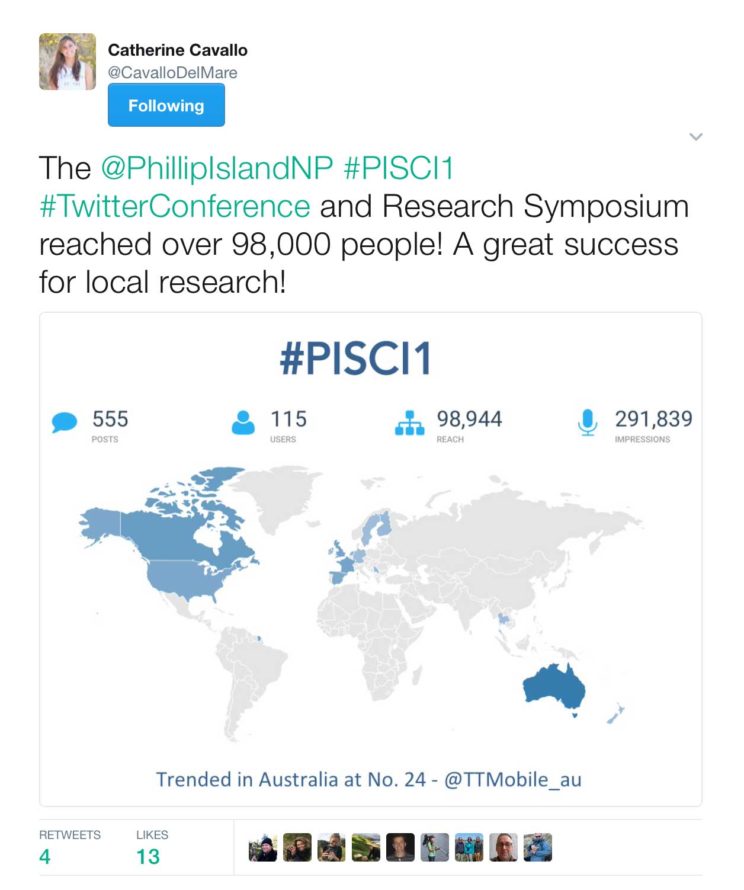
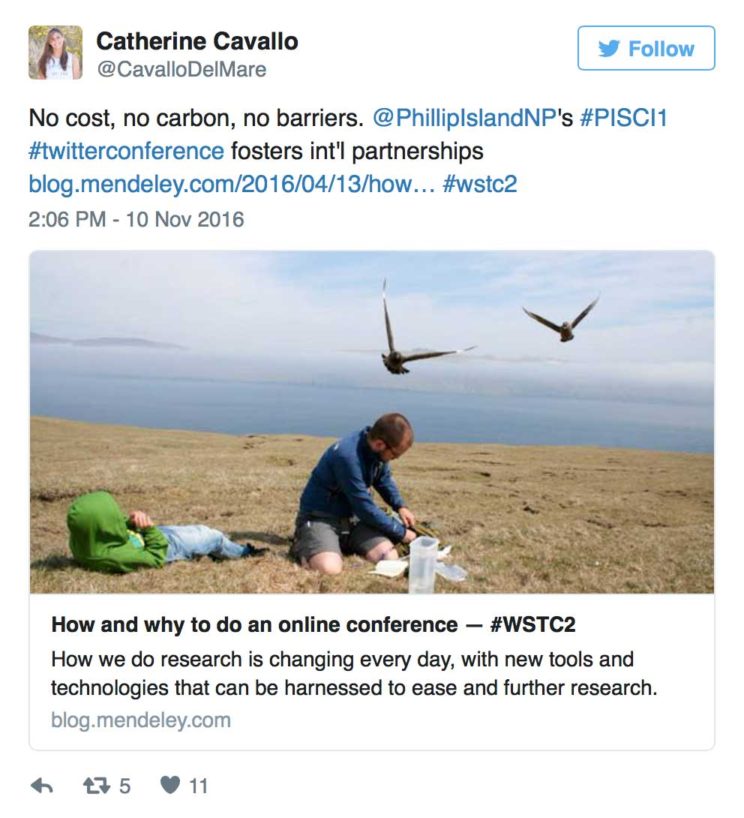
#WSTC3: a conference, but not as you know it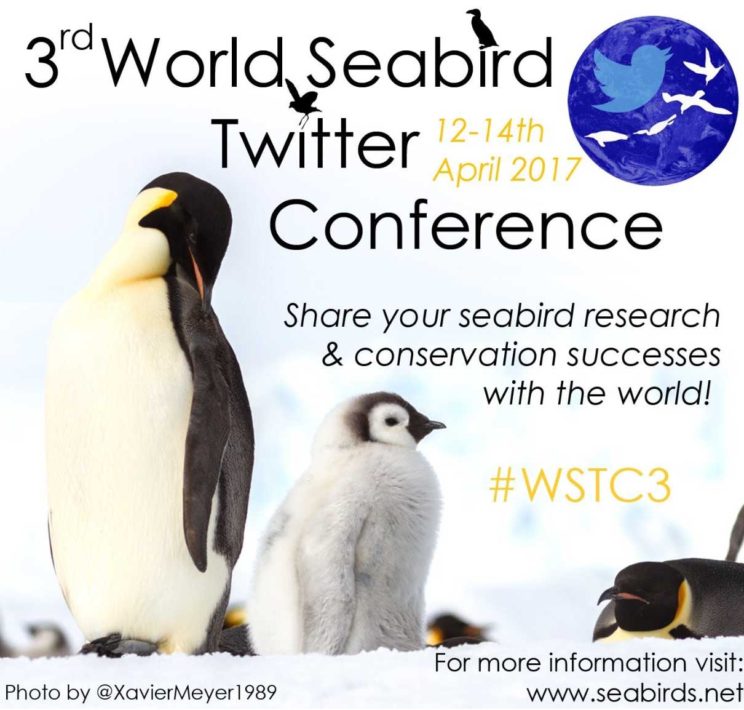
Our resident seabird nerds Cathy, Sonia, and Andre (Phillip Island Nature Parks), presented their work as part of the World Seabird Twitter Conference (#WSTC3). In its third year, this hugely successful international conference again showcased the best of the world’s latest seabird research, from taxonomy to climate change, foraging ecology and diet through to tracking, fisheries management and ecosystem modelling. Differing from traditional face to face conferences, the medium of Twitter allows the entire seabird science community to come together without the associated travel costs or emissions! It is a highly interactive format, where questions can be asked of presenters throughout the conference, and international collaborations spring up in moments.
You can catch up on Cathy’s presentation by clicking here.
Chris and Fran have become parents!
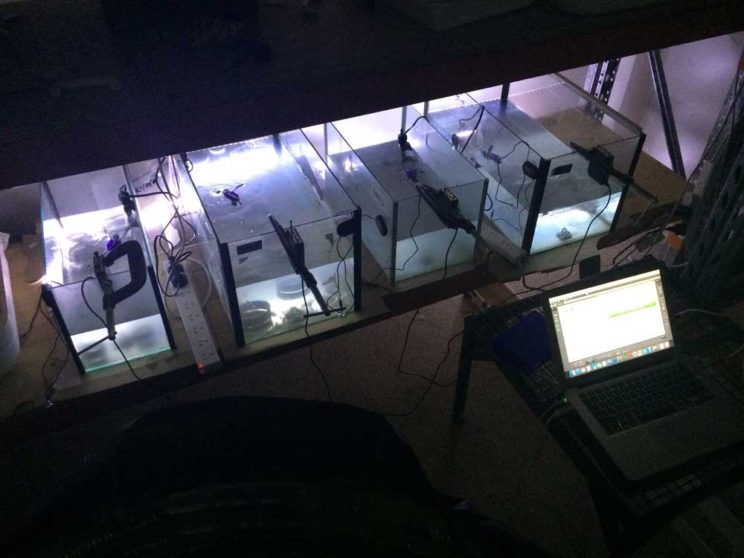
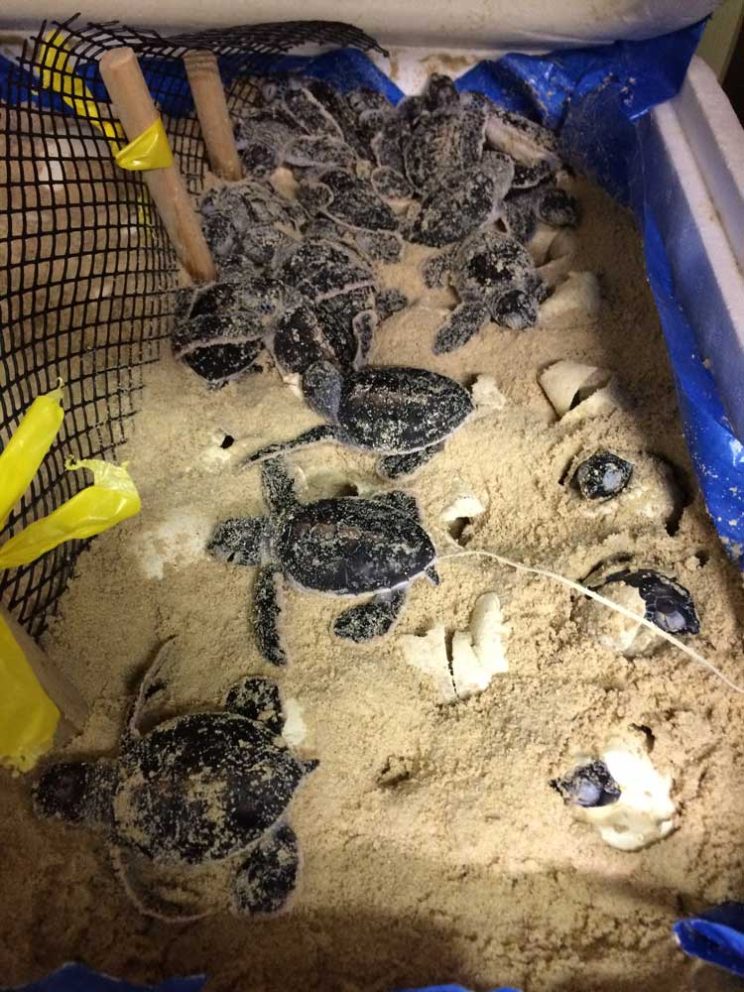 We are proud to announce the successful hatching of over 200 green sea turtle eggs, collected from Heron Island, Queensland in January. Fran has taken blood and cloacal samples from his hatchlings while Chris is currently in the process of testing hatchling metabolic rates, swimming performance, and crawling performance. The hatchlings are happily settling into their new housing facilities in Fishcore where they will live for the next 12 weeks.
We are proud to announce the successful hatching of over 200 green sea turtle eggs, collected from Heron Island, Queensland in January. Fran has taken blood and cloacal samples from his hatchlings while Chris is currently in the process of testing hatchling metabolic rates, swimming performance, and crawling performance. The hatchlings are happily settling into their new housing facilities in Fishcore where they will live for the next 12 weeks.
Green turtle research
Fransiscus has been busy with a number of field trips, mostly to Mon Repos and Heron Island in Queensland, where he’s been sampling nesting female loggerhead and green turtles. In March 2017, Franciscus returned to Heron Island to collect data on hatchling green turtles, sampling about 60 turtles this trip.
Have a look at the his short movie showing some of his field work with sea turtles on Heron Island in the southern Great Barrier Reef.
Little penguin foraging
After several months of tracking penguins, field work is finished at the little penguin colony in St Kilda and Hayley is now preparing to submit her Honours thesis. Using GPS logs from 2008, 2011, 2012, and 2016, she is currently piecing together how weather plays a part in penguin foraging. It appears that rainfall and the flow rate of the Yarra River are the main determining factors in the birds’ foraging location and success. Wind velocity and direction have also been found to have a significant effect on the distances they travel.
Effects of zinc contamination
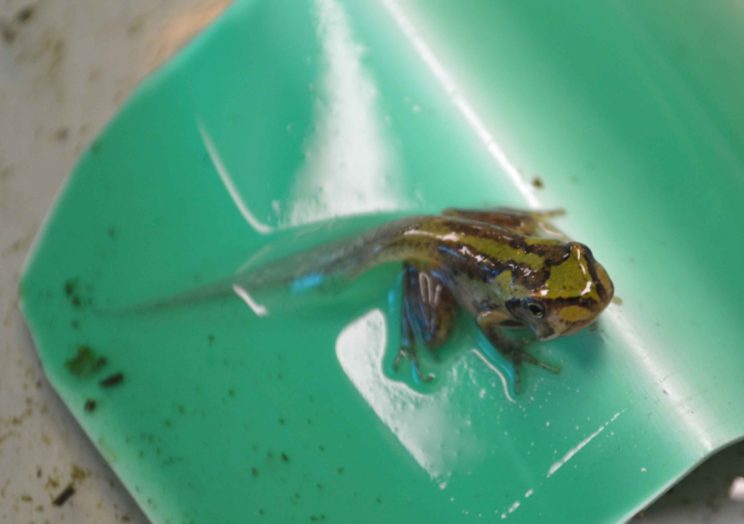 Natarsha has been spending the last 9 months researching the sublethal effects of zinc contamination on Southern brown tree frog (Litoria ewingii) tadpoles. Currently, Natarsha is working on her final honours thesis for submission in mid April. So far, she has found that both low and high concentrations of zinc significantly accelerate time to metamorphosis. Also, at early and mid developmental stages, zinc has the ability to increase body length and mass. Finally, moderate concentrations of zinc significantly increase general activity levels of tadpoles, and zinc has not shown to have any significant effects upon tadpole anti-predator behaviours.
Natarsha has been spending the last 9 months researching the sublethal effects of zinc contamination on Southern brown tree frog (Litoria ewingii) tadpoles. Currently, Natarsha is working on her final honours thesis for submission in mid April. So far, she has found that both low and high concentrations of zinc significantly accelerate time to metamorphosis. Also, at early and mid developmental stages, zinc has the ability to increase body length and mass. Finally, moderate concentrations of zinc significantly increase general activity levels of tadpoles, and zinc has not shown to have any significant effects upon tadpole anti-predator behaviours.
Looking into the `time` dimension of biologger datasets
While we often work toward definitive, quantitative answers to the questions we ask, an important step in the process to getting there is effective data visualisation. To that end, Ross has been developing several tools to help our researchers visualise their data more easily, and in more informative ways. One of these tools is `gpsTracks`, an R package which interpolates the often sparse geo-location data from tracked animals, and displays it as a time-lapse video. This is an example application, showing the foraging behaviour of Phillip Island’s penguins during each of the 3 key breeding stages. Each pathway is an individual penguin, with its prey encounters displayed as “bubbles”. Toward the end of the video, a kernel density plot emerges, revealing where the penguins’ foraging has been concentrated.
This will be a powerful tool for our researchers in guiding data analyses, as well as when communicating their data to wider audiences.

Sean with a leatherback hatchling. Pacuare, 2016.
Sean Williamson: travelling, talking, and turtles
Sean completed his final PhD experiment on Costa Rican leatherback turtles, returning from his final field season in September last year. This time he was working on the Caribbean Coast of Costa Rica at Pacuare Nature Reserve and hosted by Ecology Project International ( http://www.pacuarereserve.org/ ).
Whilst Sean was away from Australia he was also able to ‘nip’ across the Atlantic and present two talks at the 2016 Society for Experimental Biology conference. The first talk was titled “Embryonic development is constrained by in utero oxygen availability prior to oviposition”, which Sean gave during the special Satellite meeting, which was focused on Egg Physiology and organised by Dr. Steve Portugal. The second talk was titled “Novel insight into the developmental physiology of turtle eggs provides a new tool for conservation”, which Sean gave during the main conference. Sean was awarded the only student grant to attend the Satellite meeting and an SEB student travel grant for the main conference. Since returning to Australia, Sean is now working on writing up his PhD thesis with the aim of submitting in the next two months.
Sonia does 3MT, and makes it to the final!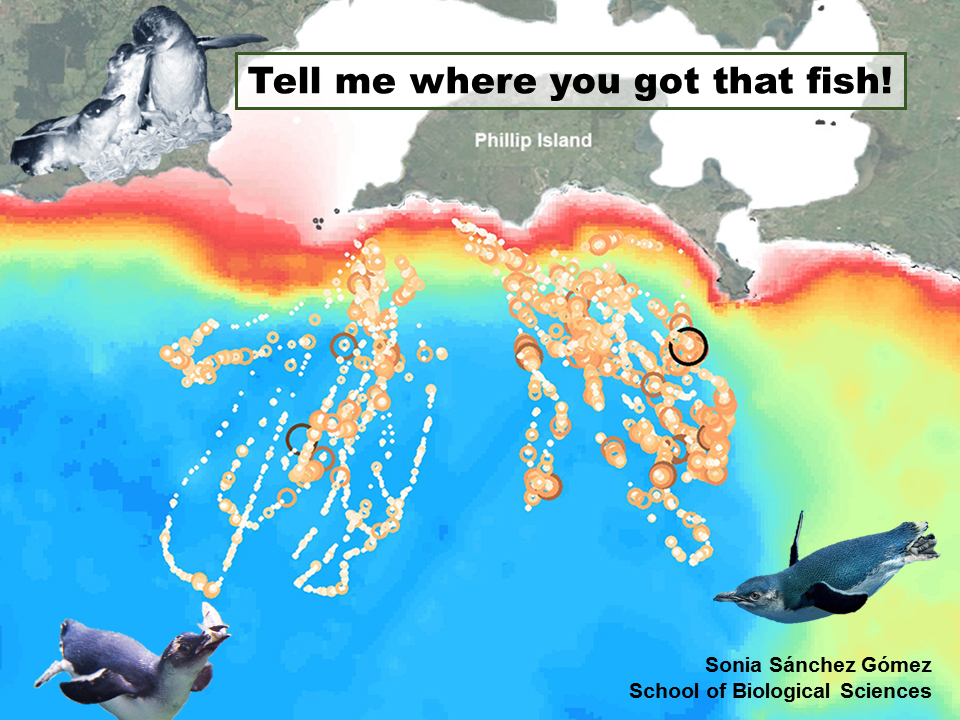
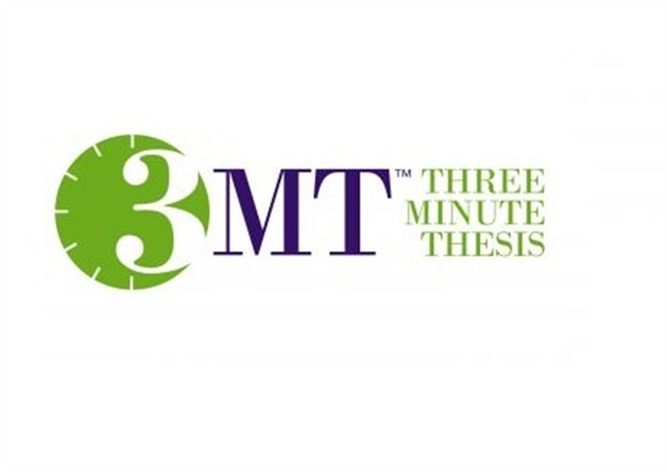 Our Spanish PhD student, Sonia Sanchez, participated in the School Three Minute Thesis (3MT) Competition at Monash last August. Sonia did a great job presenting her research in three minutes (and speaking surprisingly slow for her!), earning the honour of competing in the Faculty final!
Our Spanish PhD student, Sonia Sanchez, participated in the School Three Minute Thesis (3MT) Competition at Monash last August. Sonia did a great job presenting her research in three minutes (and speaking surprisingly slow for her!), earning the honour of competing in the Faculty final!
Another great year for the little penguins at Phillip Island!
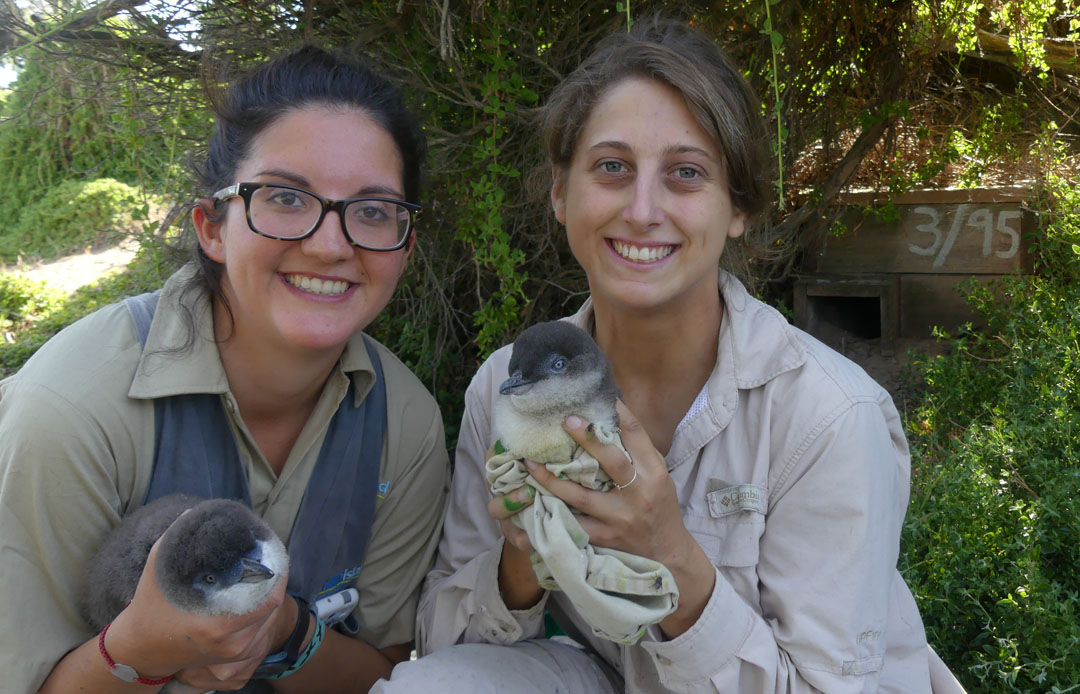 The Penguin Team has just finished another successful breeding season! This season didn’t start as early as the previous one (the first egg was recorded in August) but numbers indicate that it’s been a great year for little penguins again. The breeding success is around 2 chicks fledged per pair at Penguin Parade (there are still few chicks left in the colony). Many of the adults are either moulting in the colony or some of them have already finished their moult and are out at sea.
The Penguin Team has just finished another successful breeding season! This season didn’t start as early as the previous one (the first egg was recorded in August) but numbers indicate that it’s been a great year for little penguins again. The breeding success is around 2 chicks fledged per pair at Penguin Parade (there are still few chicks left in the colony). Many of the adults are either moulting in the colony or some of them have already finished their moult and are out at sea.
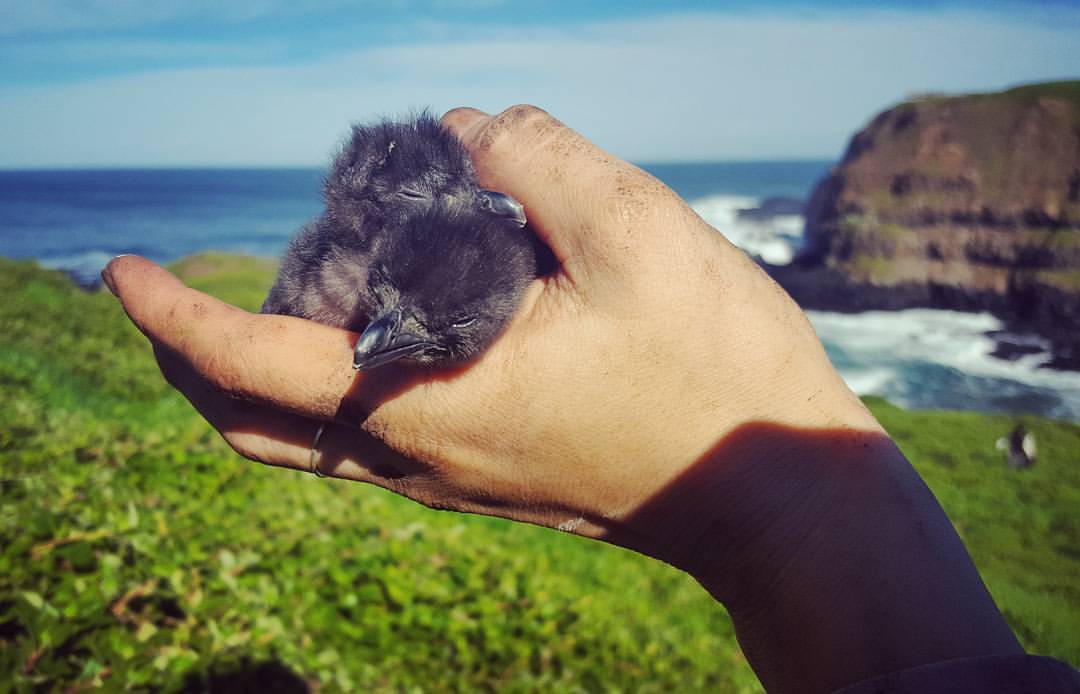 With this season, Cathy and Sonia have finished the data collection for their PhDs! So now they are busy analysing all these data and preparing their first manuscript and the Mid-candidature milestone for the nest month. Cathy has collected near 1000 scat samples more and she’ll be analysing the DNA from them at the Australian Antarctic Division, in Tasmania, later this year. Sonia has tracked the foraging trips of 72 different penguins more and now she’s looking at the effort and success of these birds finding food. Penguins from Radio Tracking Bay dive deeper, but they don’t seem to be as successful as those from Penguin Parade!
With this season, Cathy and Sonia have finished the data collection for their PhDs! So now they are busy analysing all these data and preparing their first manuscript and the Mid-candidature milestone for the nest month. Cathy has collected near 1000 scat samples more and she’ll be analysing the DNA from them at the Australian Antarctic Division, in Tasmania, later this year. Sonia has tracked the foraging trips of 72 different penguins more and now she’s looking at the effort and success of these birds finding food. Penguins from Radio Tracking Bay dive deeper, but they don’t seem to be as successful as those from Penguin Parade!
Richard speaks on radio about sea turtles and climate change
Richard was again a guest on ‘Radio Marinara’ on RRR Melbourne, talking about climate change and its impact on sea turtles. A recording can be found by clicking here.
The segment starts at 19.45 and runs for about 15 minutes.
Ross crunching massive numbers of penguin recordings
Sometimes, on the path toward useful data, collecting it is the easy part, and trying to actually use it is the hard part. That’s certainly the case when it comes to our Automated Penguin Monitoring System “weighbridges”, which scan and weigh Phillip Island’s penguins with very little field work required. Ross has been working on making the 10s of millions of data-points that come out of this system more reliable, and more accessible to our researchers. He’s created algorithms to continuously analyse the data as it’s collected, along with a user interface which gives researchers an easy and intuitive way to get the information they need, make sure it’s accurate, and put it into a format they can use.
Derek about to finish his PhD on shark bycatch
Derek is preparing to submit his PhD thesis and has accepted a position working for the Washington State Department of Fish and Wildlife. For his new job, he will be modelling stocks of Pacific salmon and help to designate fishing quotas. He has returned to the United States, plans to submit his thesis in the next few days, and will commence working in the beginning of May.
International Penguin Congress in Cape Town, South Africa
Sonia and Cathy have just been accepted to present their PhD research to the International Penguin Congress in Cape Town later this year. Sonia will present the results of her first GPS and accelerometry tracking season, while Cathy will present 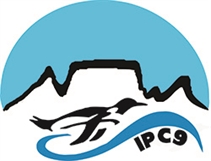 the DNA analysis of her diet research, which reveals a high incidence of jellivory (predation on jellyfish) in the species at Phillip Island. They are looking forward to meeting researchers in their field and catching up with the local African Penguins.
the DNA analysis of her diet research, which reveals a high incidence of jellivory (predation on jellyfish) in the species at Phillip Island. They are looking forward to meeting researchers in their field and catching up with the local African Penguins.
Milestone achieved: Confirmation!
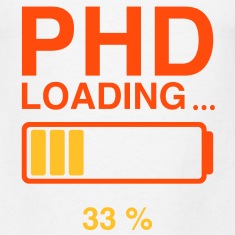 Congratulations to Cathy and Sonia, who recently completed the PhD milestone of Confirmation. Cathy and Sonia were required to submit a progress report and present a 25 minute presentation on their research, including their plans for the coming years. Their respective panels were impressed by what the penguin team have achieved so far, and enthusiastically approved the continuation of their research.
Congratulations to Cathy and Sonia, who recently completed the PhD milestone of Confirmation. Cathy and Sonia were required to submit a progress report and present a 25 minute presentation on their research, including their plans for the coming years. Their respective panels were impressed by what the penguin team have achieved so far, and enthusiastically approved the continuation of their research.
A great year for the little penguins at Phillip Island
Field season is over for the Penguin Team! It’s been a great year for the little penguins down in Phillip Island, with more than 1.5 chicks fledged per pair at both sites, Penguin Parade and Radio Tracking Bay. A particularly long season that started very early (first egg was recorded in May) has allowed some pairs to lay three clutches, when usually they would only lay one or sometimes two. By March, most of the chicks had already fledged and many of the adults were either moulting or had finished their moult and were on long trips out at sea.
Regarding the data collection for their PhDs, Cathy has collected more than 980 scat samples and she’ll be analysing the DNA from them at the Australian Antarctic Division, in Tasmania, for the next two months. Sonia has completed her tracking season with success, obtaining data for 67 trips, all from different birds. GPS data have already revealed a strong spatial segregation between the two sites.
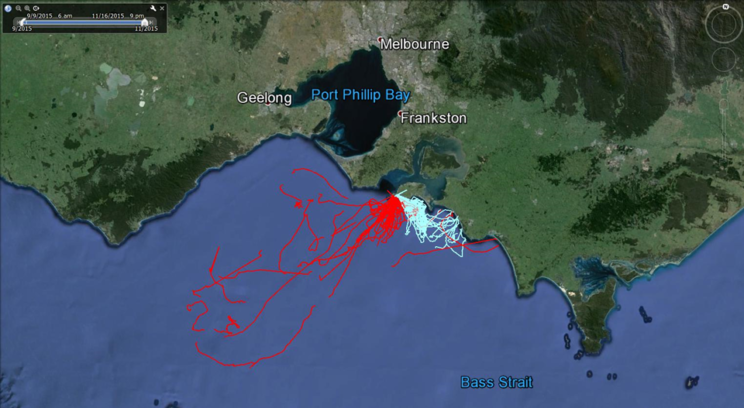
Sean completes 5 months field work in Costa Rica
Sean has recently returned from a 6 month field trip to Costa Rica, where he collected data for four experiments and is now getting stuck into the writing and analysis. There were many long nights spent patrolling a leatherback sea turtle nesting beach aptly named “Playa Grande” in the Guanacaste province of Costa Rica. Sean worked full-time as a field biologist for the Leatherback Trust whilst he completed his PhD experiments. He has since arranged with the director of the Pacuare Nature Reserve to return to Costa Rica in June, this time to the Caribbean side, to complete the final experiment for his PhD.
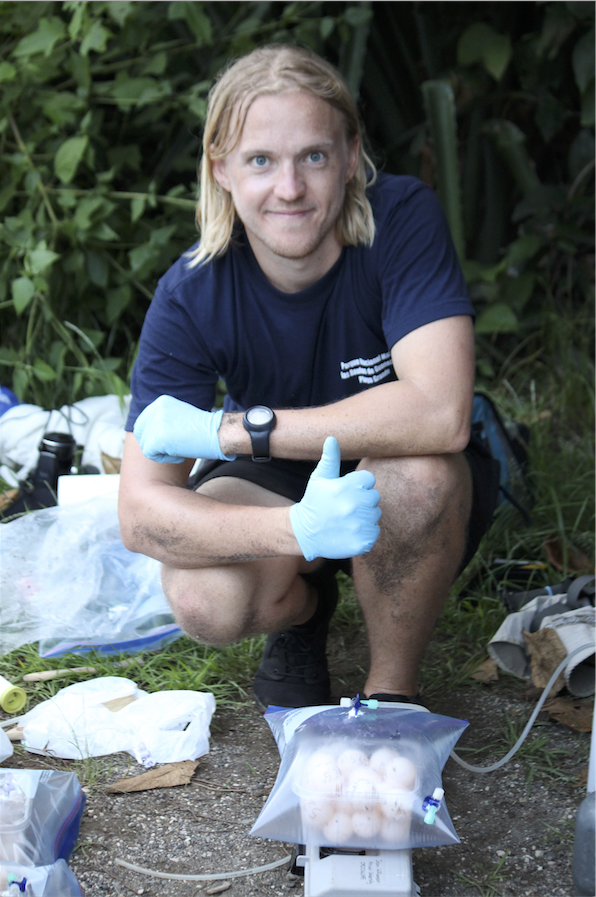
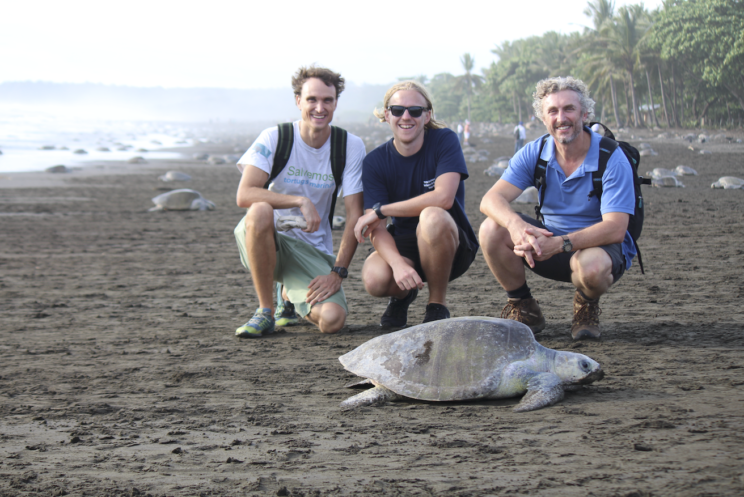
Congratulations to Brian and Lynette for PhD completion
The PhD theses of Brian and Lynette were passed by examiners and both have been awarded their doctorate – big congratulations all round. Lynette and Brian completed their studies on frog ecology and frog responses to environmental salinity respectively, and will graduate in May.

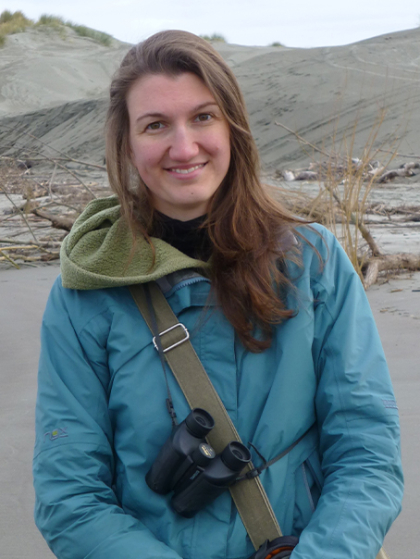
Drones are great for finding turtles
At Heron Island on the Barrier Reef, Richard recently trialled the use of a quadcopter drone for surveying for turtles and identifying sex from the air. Despite some anxious moments with low battery power far from home, the system worked very well and will be the basis of a larger-scale project soon.
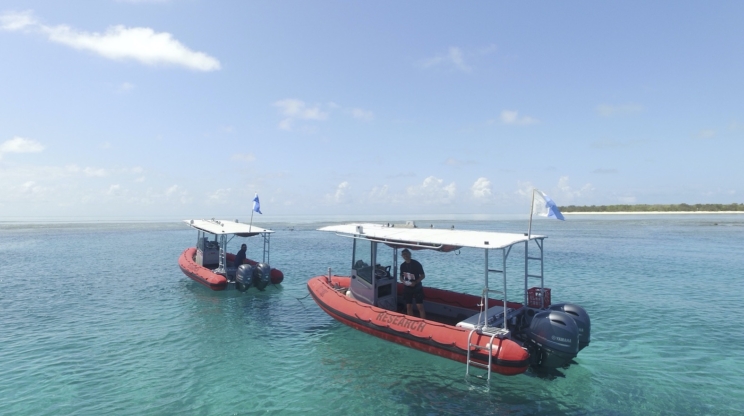
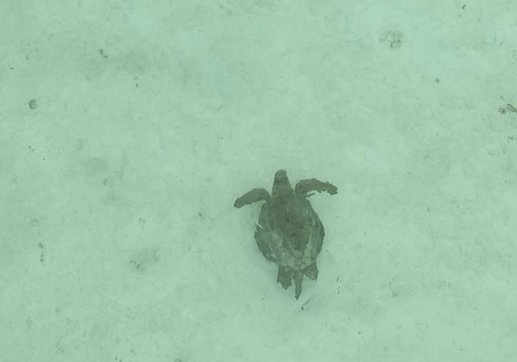
International Sea Turtle Symposium
Richard and Sean attended the International Sea Turtle Symposium in Lima, Peru. The symposium is an annual meeting for sea turtle biologists, managers and conservationists from around the world and a focal point for international planning. Sean presented a talk titled ‘Use of hypoxia to extend embryonic arrest in turtle eggs and prevent movement-induced mortality’ which was very well received. Following the symposium a trek on the Inca trail to Machu Picchu was a fantastic experience.
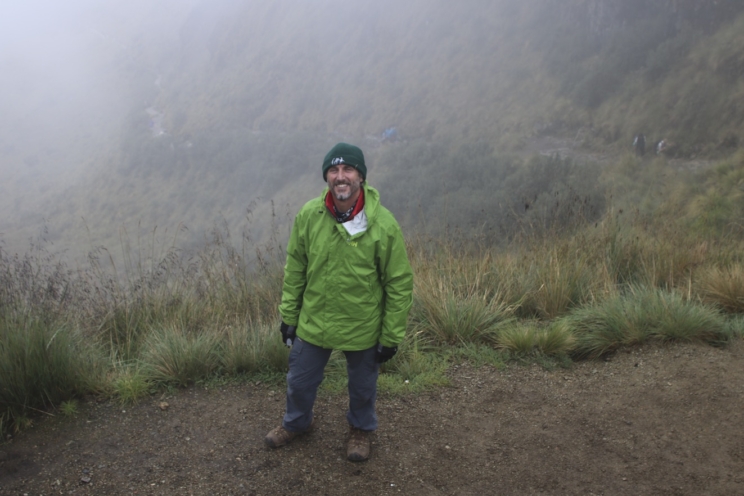
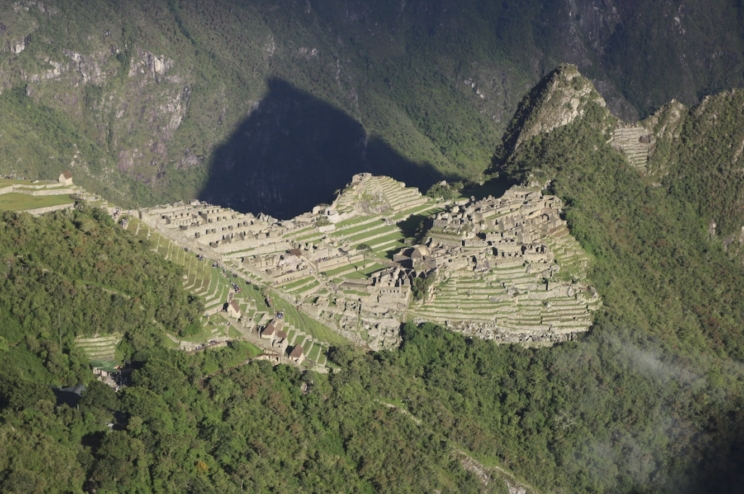
March 2016
Penguin help: Australia’s next generation of scientists
Richard and Cathy were featured on the ABC TV show, 7.30 and also interviewed for an ABC online article. The article and video shows how research on the Phillip Island little penguins helps reveal what is happening out in the oceans off Australia’s south-east, where water temperatures are rising faster than almost anywhere else in the world.
You can watch the 7.30 show clip here, and read the online copy below or here.
October 2015
Lynette submits her PhD thesis
Congratulations to Lynette on the submission of her thesis ‘The ecology of native Australian frogs’. It was a close thing, but she made her deadline and the thesis is now in the hands of two external examiners. After some great work in the field and the lab Lynette is now recovering, finishing manuscripts and de-stressing.
Well done frog-lady!
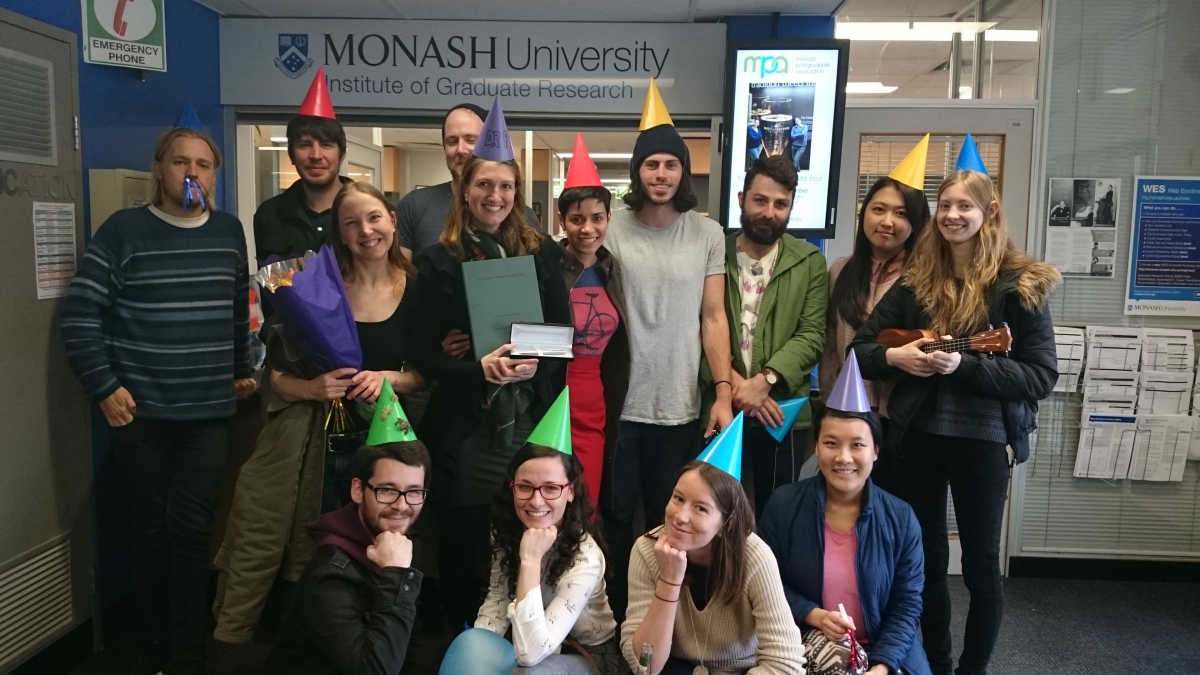
Richard talks to Labrats
Richard presented to about 50 school kids from grades 4 to 10 on his marine biology research work. The kids are part of the ‘Labrats Science Club ‘ http://www.labratclub.com/ that allows children interested in science to explore beyond what is offered at school. Richard’s presentation on the day was about sea turtles, fisheries and ‘The Fishing Game’ which to illustrate principles of sustainability in the oceans, using chocolates as fish. Nothing motivates kids like chocolates.
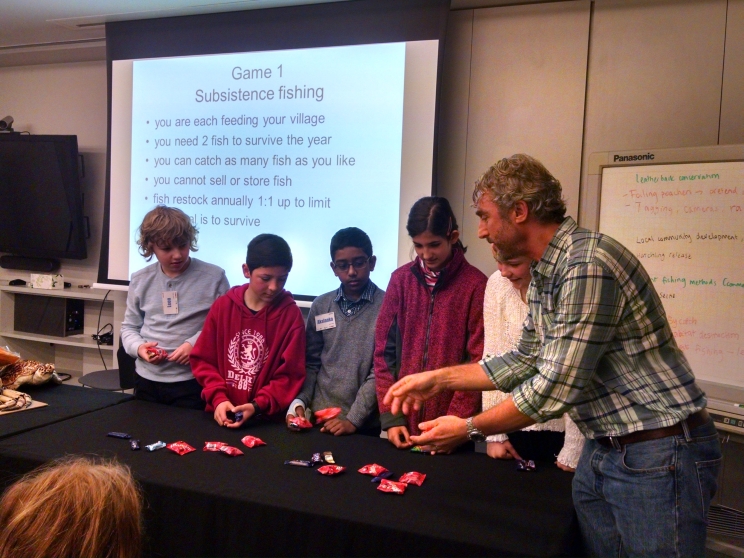
September 2015
Nikki completes two major projects
Congratulations to Nikki on two major events. Nikki submitted her PhD thesis on foraging and reproductive ecology of little penguins, as well as welcoming baby Lily just a few weeks later. The thesis was passed by the examiners without requiring revision, which is an unusual and outstanding achievement. The formal, hardcover final copy was then lodged at the graduate school with Lily’s assistance. High-five Dr Nikki!
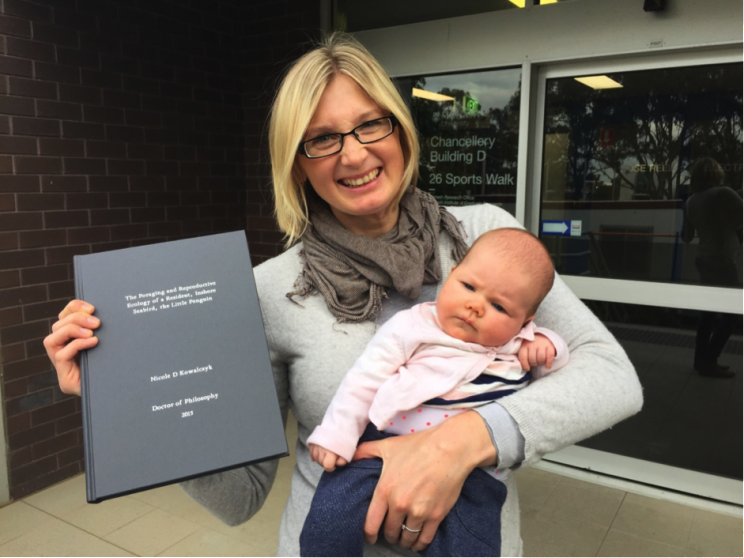
Media coverage of Lynette’s project
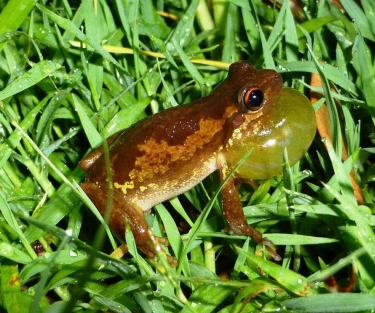 Lynette’s PhD project on the ecology of Litoria frogs was featured in a story in The Age newspaper, focusing on the invasion biology of the bleating tree frog at Lord Howe Island. Lynette’s thesis is in the final stages of completion.
Lynette’s PhD project on the ecology of Litoria frogs was featured in a story in The Age newspaper, focusing on the invasion biology of the bleating tree frog at Lord Howe Island. Lynette’s thesis is in the final stages of completion.
Derek’s first PhD paper published
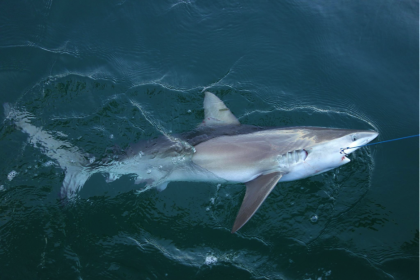 Derek was lead author on a global meta-analysis of shark survival rates from fisheries capture and the impact of respiratory mode and gear type. The active ram-ventilating sharks are the ones at most risk of mortality because they can’t move enough to keep water flowing over the gills. Suffocation and death are a common result, so conservation and management actions need to address this vulnerability. The work was published in the world’s top fisheries journal Fish and Fisheries.
Derek was lead author on a global meta-analysis of shark survival rates from fisheries capture and the impact of respiratory mode and gear type. The active ram-ventilating sharks are the ones at most risk of mortality because they can’t move enough to keep water flowing over the gills. Suffocation and death are a common result, so conservation and management actions need to address this vulnerability. The work was published in the world’s top fisheries journal Fish and Fisheries.
Media coverage of this project:
Monash University News – http://monash.edu/news/
The Age newspaper – ![]() Marine science breathes life into netted apex predators – by Peter Spinks
Marine science breathes life into netted apex predators – by Peter Spinks
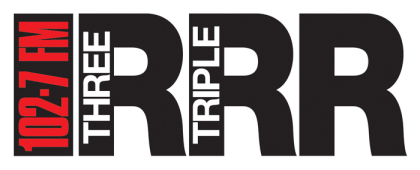 3RRR’s Radio Marinara interview – You can listen to the interview here (they come in at 16 mins 22 secs).
3RRR’s Radio Marinara interview – You can listen to the interview here (they come in at 16 mins 22 secs).
Penguin work in the media
The penguin team met down at Phillip Island to plan the coming breeding season and hear research proposals from Sonia and Cathy. While they visited their various research locations, they were shadowed by a filming crew from Wild Melbourne, who filmed two “Science Shorts” segments for their website. The first features Richard and Andre discussing their Phillip Island research and how the marine environment influences little penguin foraging. For the second segment, Wild Melbourne followed Cathy and Sonia as they went about their fieldwork which is now in full swing: checking colony attendance, egg and chick numbers and weighing the growing chicks. These films and an accompanying article about our little penguin research can be found at:
http://wildmelbourne.org/articles/2015/8/4/science-shorts-little-penguins
Wild Melbourne is a not-for-profit organization dedicated to engaging the Victorian community with its local wildlife and wild places, to promote appreciation and conservation.
Cathy attends AMSA
Cathy attended the Australian Marine Sciences Association annual conference, which was held in Geelong in early July. She presented her Masters research, which was published earlier this year in the journal Functional Ecology. In this study, Cathy developed a model to predict green sea turtle hatchling responses to warming temperatures in their incubation and dispersal environments. She found that climate change is likely to significantly affect sea turtle egg viability and hatchling dispersal potential. This research can be found at:
http://onlinelibrary.wiley.com/doi/10.1111/1365-2435.12389/abstract?
June 2015
Automated Penguin Monitoring System (APMS) reaching full functionality.
Ross has been busy installing, testing, modifying, and re-testing our penguin monitoring system at Radio-Tracking Bay (pictured), which has been collecting data for 196 days and has recorded more than 28,000 penguin crossings.
Radio-Tracking bay, with the APMS power and communications hut (Pinglu) at left.
About 300 individual penguins have made their way across the new APMS platform, having their weight and time of crossing recorded. 173 of those penguins are implanted with an RFID microchip, meaning that their identity is also recorded, and their crossing data can then provide even more detail about their ecology. While this new system is in its infancy, it is already providing a valuable piece of the penguin ecology and marine ecosystem state project puzzle.
Richard and Sean attend the International Sea Turtle Symposium
The 35th annual symposium on sea turtle biology and conservation was held in Dalaman, Turkey, where Richard gave the invited keynote address entitled ‘Sea turtles and climate change’.
In attendance were the Governor of the Province of Muğla, several government ministers and about 600 conference delegates from over 50 countries. Sean presented his findings from an incubation experiment he had completed on Heron Island one week earlier. Talk about a quick turnaround! Sean’s presentation on the role of hypoxia in extending embryonic arrest was well received by the audience and there were many interesting questions from people excited by the potential applications of the findings for avoiding movement-induced mortality when transporting turtle eggs. Post-conference, Sean is currently recovering from his Turkish coffee addiction whilst Richard is a recovering from a near-fatal baklava overdose.
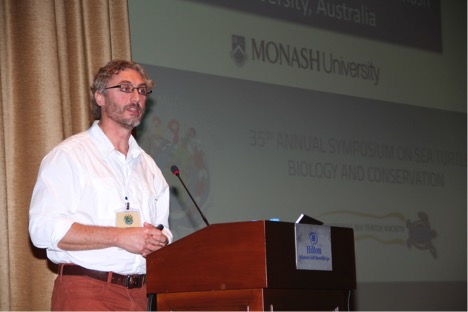
Richard’s keynote presentation on sea turtles and climate change

Sean & Richard visiting the travertine terraces at Pammukale, Turkey. It looks like snow but it’s actually calcium carbonate

Sean’s turtle egg data collection in the lab at Heron Island, Great Barrier Reef
Cathy returns from doing DNA analysis in Tasmania:
Cathy has returned from a trip to the Australian Antarctic Division in Kingston, Tasmania to learn and test genetic analysis techniques she will be using to investigate which prey species little penguins feed on. She started by extracting the DNA material from 300 samples of penguin poo! We are using a technique called DNA barcoding, which allows samples of DNA to be individually marked with unique sequences of DNA code. This relatively new method allows us to mix all DNA samples together, permitting many more samples to be examined than previous methods, in a rapid timeframe. A three-week cycle of DNA extraction, amplification, cleaning and barcoding culminated in one very exciting and nervous encounter with the DNA sequencing machine that will tell us what individual penguins at each site ate during the 2008/09 breeding season! The process was a success, and we are currently awaiting the specific results from the Australian Antarctic Division.

Cathy looking scientific and doing DNA extraction at the AAD

Cathy and DNA sequencing machine that does all the hard work while she relaxes
Sonia completes training on tracking technology in Strasbourg:
Recently Sonia has been at the Institut Pluridisciplinaire Hubert Curien (Strasbourg, France) for one week to get trained in the use of biologgers by our collaborators Dr Akiko Kato and Dr Yan Ropert-Coudert. She was taught how to set GPS and accelerometer (ORI, Axy-D and Wacu) loggers and to use Igor Pro Software for data diving analysis. Sonia carried a GPS logger while walking in Strasbourg, shown on the map here, so you can see how accurate GPS data are. We’ll deploy these loggers on little penguins in Phillip Island to figure out where they go to feed and to study their foraging behaviour during their breeding season.
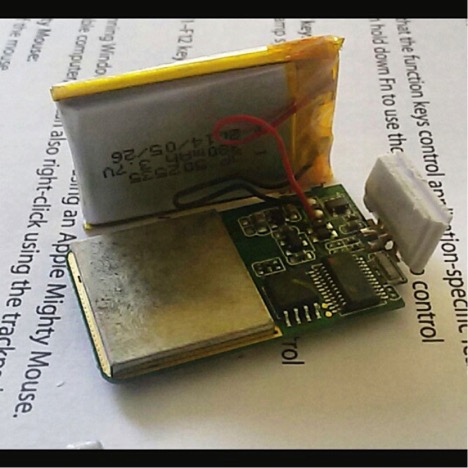
‘Nude’ GPS datalogger

Sonia’s walk through Strasbourg tracked by GPS
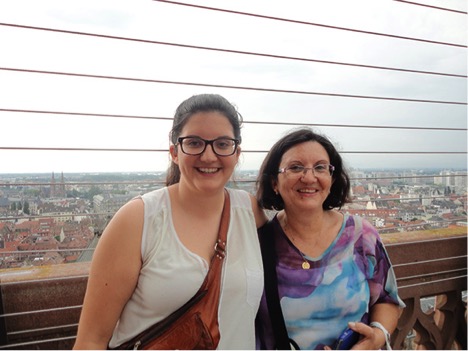
Sonia and her Mum do some sightseeing

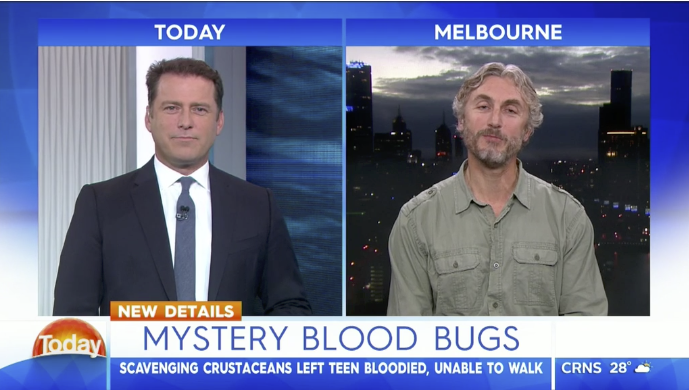
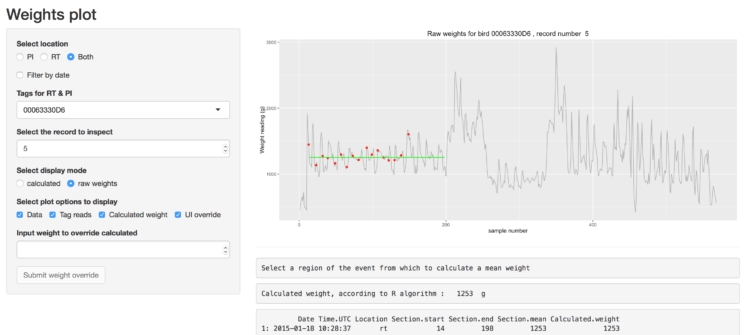
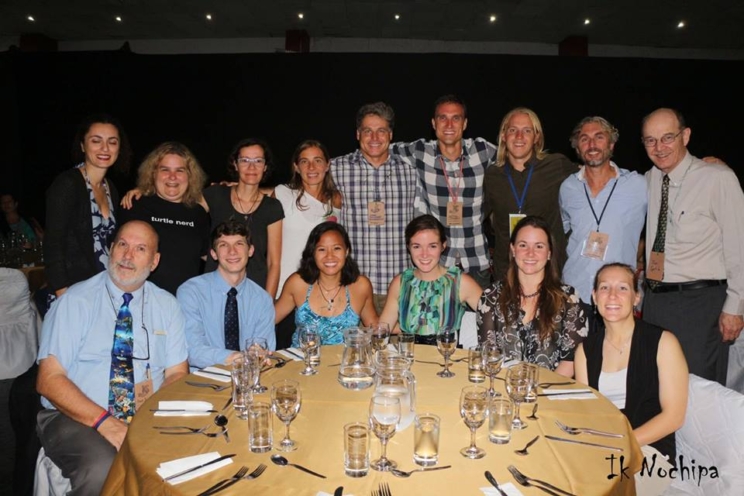
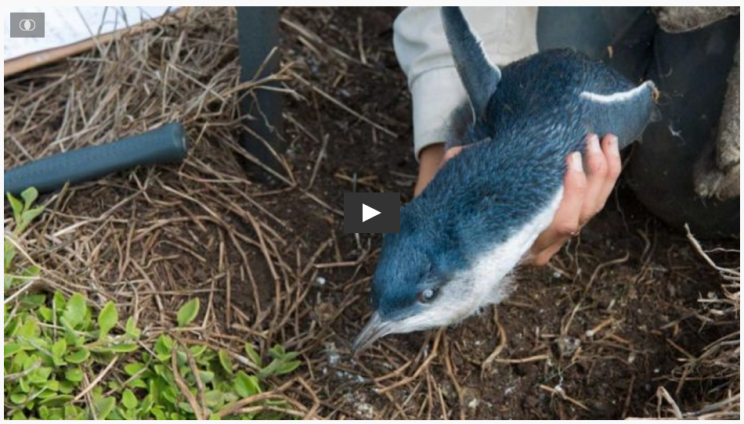

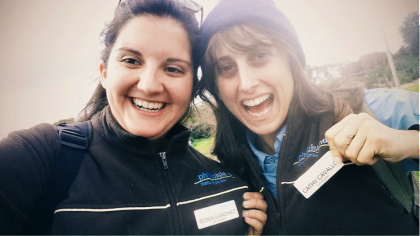

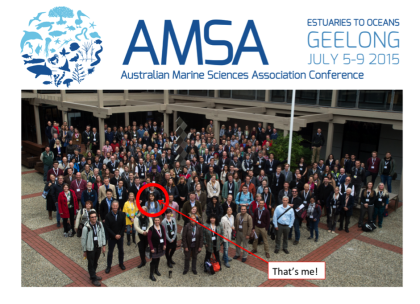

The study, led by graduating Monash Science PhD candidate Leonardo Guida, was recently published in Scientific Reports.
Read the article here